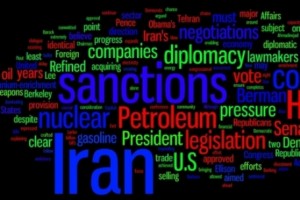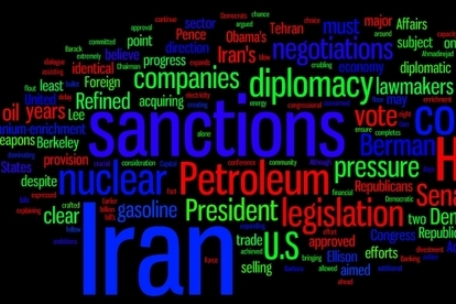 Britain�s sanctions on Iran are not limited to those of past times. At the beginning of 2007, the European Union (EU) member states, including Britain, have imposed new sanctions on Iran as part of global efforts to step up pressure against the country�s peaceful nuclear activities.
Britain�s sanctions on Iran are not limited to those of past times. At the beginning of 2007, the European Union (EU) member states, including Britain, have imposed new sanctions on Iran as part of global efforts to step up pressure against the country�s peaceful nuclear activities.Several Iranian banks have been under EU sanction in recent years without any justifications from the West.
In June 2008, EU members decided to ban the financial operations of Iran's biggest bank, Bank Melli and its subsidiaries in London, Hamburg and Paris. A decision based on unfounded claims, which was described by Iranian officials as unfair and in continuation of the politically-motivated moves against the Islamic Republic.
Later in August, Iranian bank Saderat was also subjected to asset freeze in light of tougher sanctions from the EU and British bank Barclays begun closing down accounts of Iranian customers to further isolate Iranian citizens from the global financial industry.
According to reports, the costumers have been told that this is because the banks are on a US government list of 'specially designated nationals' (SDNs) - individuals and organisations with whom US citizens and permanent residents are prohibited from doing business.
A year later, Iran�s Bank Mellat was also sanctioned by the EU over its alleged links to Tehran's nuclear energy programs.
The bank made a legal claim of 500 million pounds (USD 782 million) against the British government for loss of business caused by US-engineered illegal sanctions on Tehran between 2009 and 2013.
Britain�s Supreme Court overturned a ruling against Bank Mellat, saying the British government was wrong to have imposed sanctions on the bank. Britain's Treasury, however, is now attempting to renew sanctions against Iran's Bank Mellat regardless of the court ruling which branded the ban as unlawful.
Moreover, in July 2010, Persia International Bank Plc was added to the list of entities, which have been determined by the Council of the EU to be sanctioned. The ban imposed certain financial sanctions, including an asset freeze, on the Iranian bank.
At the beginning of 2012, the US and the European Union imposed new sanctions on Iran�s oil and financial sectors with the goal of preventing other countries from purchasing Iranian oil and conducting transactions with the Central Bank of Iran.
The illegal US-engineered sanctions were imposed based on the unfounded accusation that Iran is pursuing non-civilian objectives in its nuclear energy program.
Iran rejects the allegations, arguing that as a committed signatory to the nuclear Non-Proliferation Treaty (NPT) and a member of the International Atomic Energy Agency (IAEA), it has the right to use nuclear technology for peaceful purposes.
In addition, the IAEA has conducted numerous inspections of Iran's nuclear facilities but has never found any evidence showing that Iran's civilian nuclear program has been diverted to nuclear weapons production.
By Press TV
The Iran Project is not responsible for the content of quoted articles.











